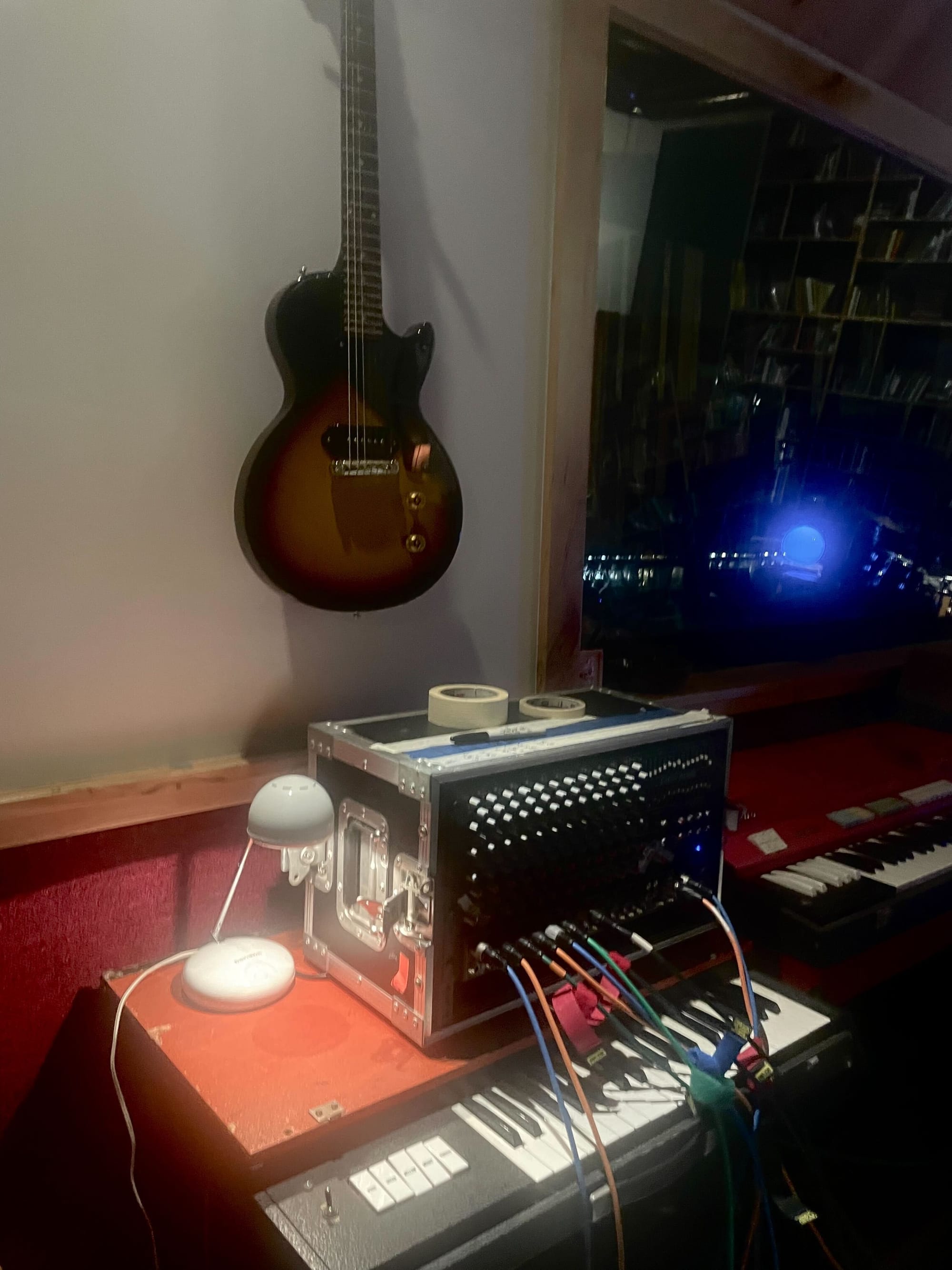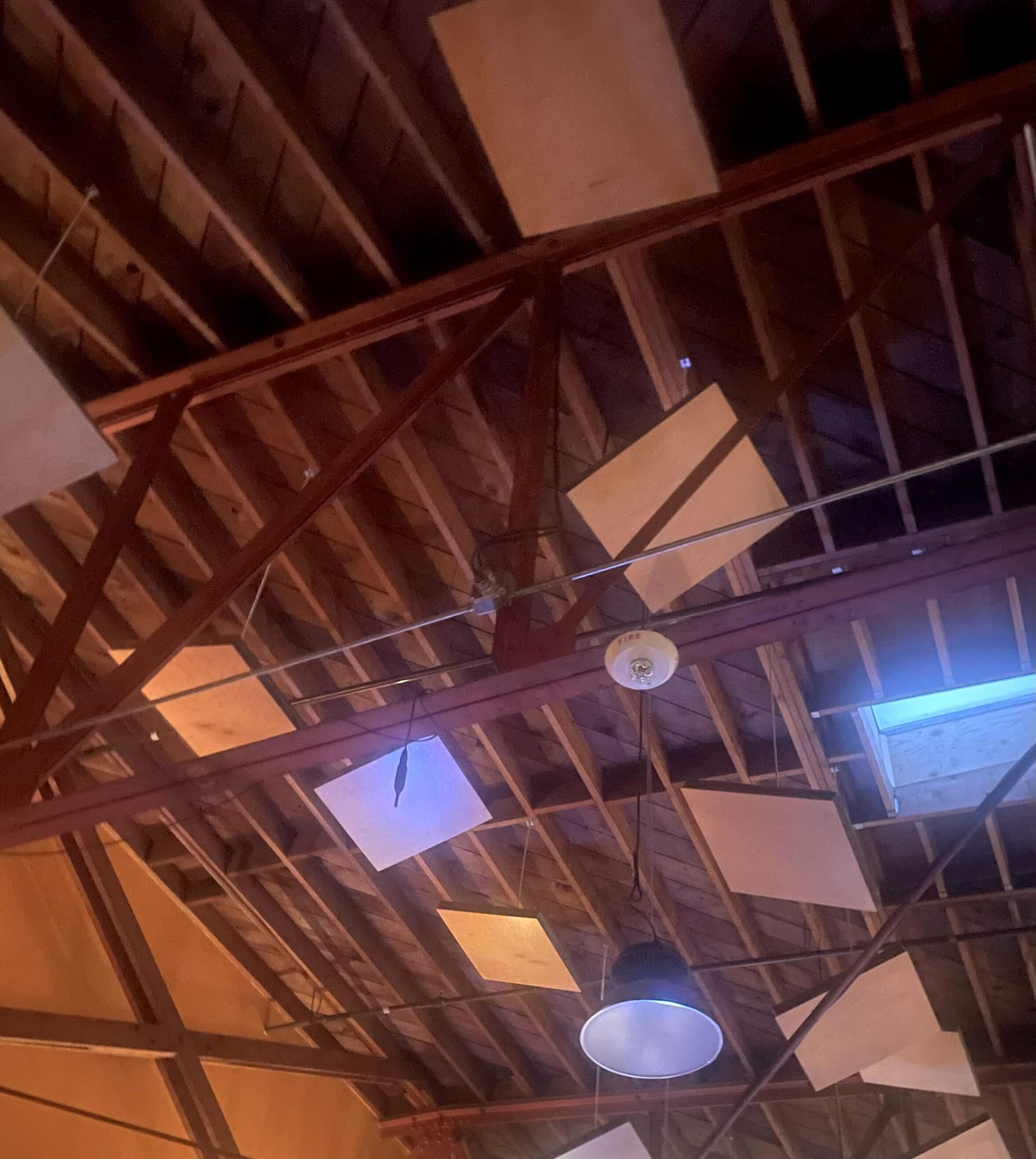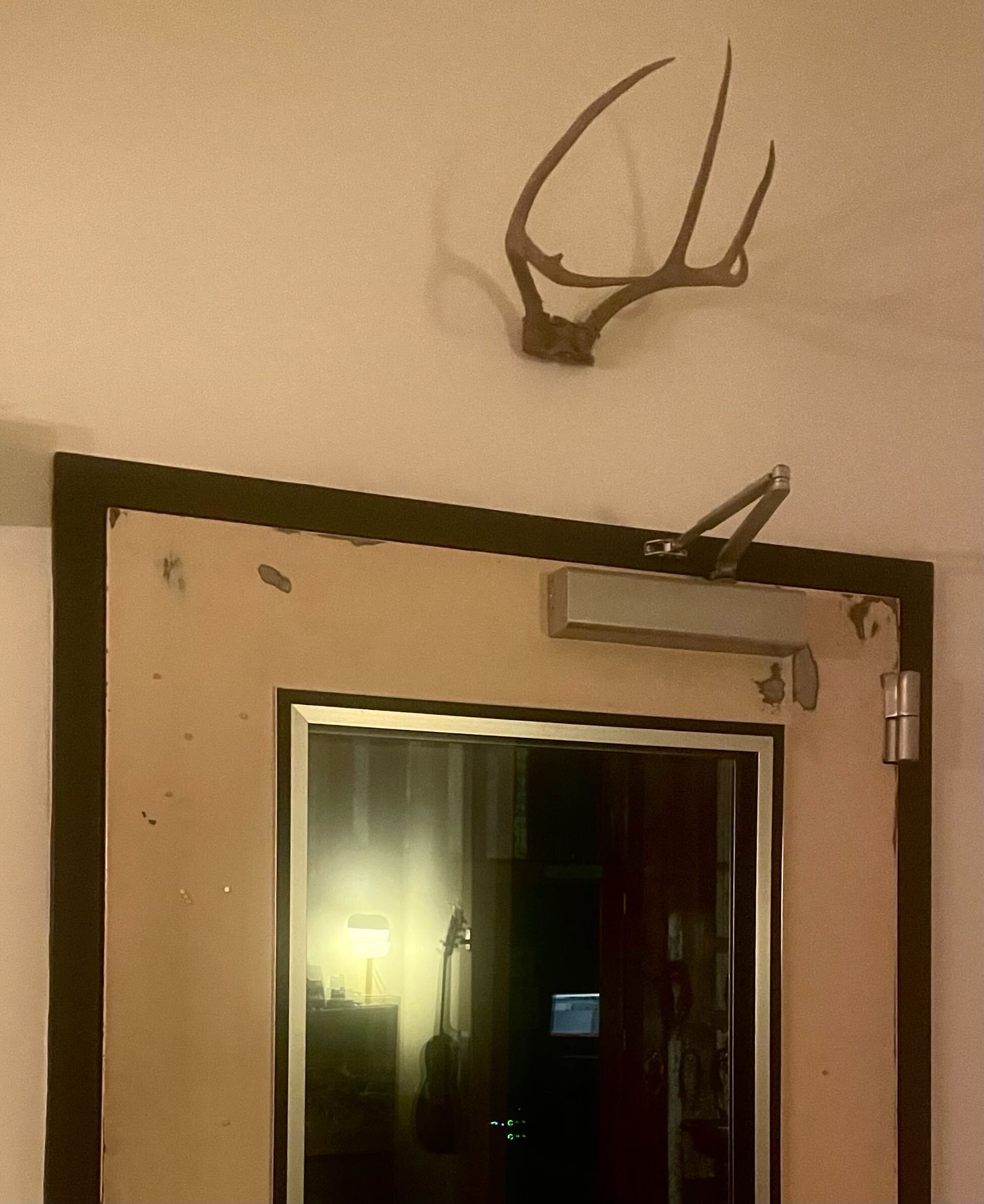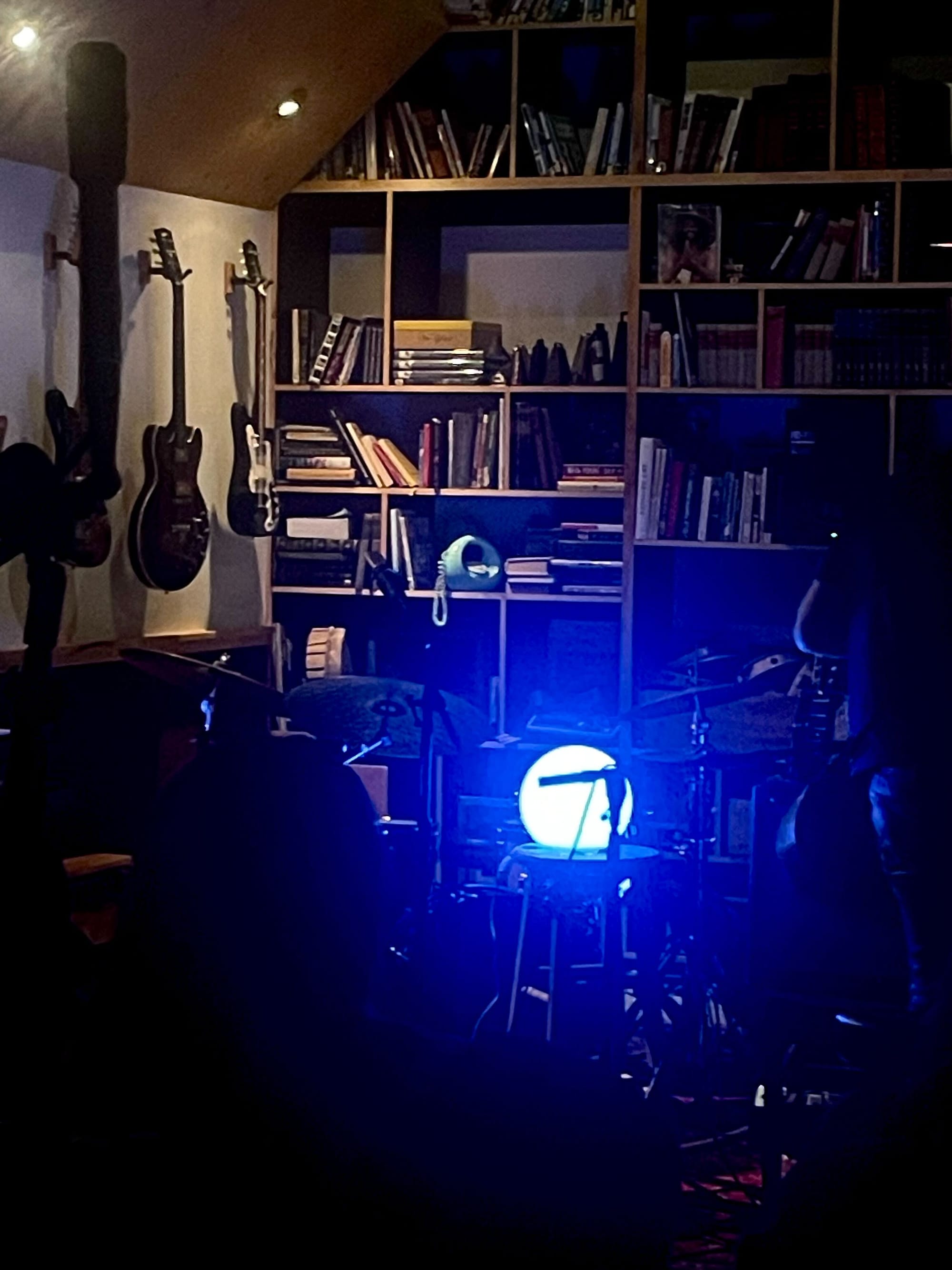The building looked like every building in that neighborhood (red brick and blocky warehouse lines) but had kept its anonymity, unlike the loft apartments and martial arts center next door. A rolled-down steel door was covered in tags, and the cars parked along the chain link looked like they hadn’t moved in years. People approaching on foot from various directions, in twos and threes, in the last light of evening, had the look of a film opening which hadn't yet revealed what conspiracy was calling them.
A young woman checked tickets at the door. Inside, after a moment of hallway, one stepped through a Tardis-like disjunction into a high, irregular, dimly lit vault of bookshelves and rugs, piled along the edges with musical gear. Keyboards, mixing consoles, reel-to-reel machines, and vintage-looking Les Pauls and Jaguars sharing the walls with weirder guitars that only a connoisseur would recognize. An upright bass was not upright, on its flank next to a grand piano. A few chairs faced a stage area with a drum kit and collection of amps, partially lit by a large violet orb; the rest of the audience quite outnumbered the chairs and stood behind. A bearded man in a ball cap sat down with a Jazzmaster and, tuning up, introduced himself and thanked the audience for coming out to Tiny Telephone.

On average, the audience looked hardly older than The Mountain Goats’ 2004 album We Shall All Be Healed—a record that a different generation remembered as a revelation of how production could bring a song to life. The Mountain Goats were no longer recording on boomboxes—this was a full studio band, complete with string section—but the instruments and voice somehow came through as urgently as in the lo-est of fi. Everything sounded raw, clipped, feral. The record's producer, John Vanderslice, as well as Tiny Telephone, his recording studio in the Mission, seemed to be everywhere in the late oughts and early teens, servicing all the indie groups that mattered—Spoon, Sleater-Kinney, The Magnetic Fields—along with a thousand up-and-comers. At least until the shop closed in 2020. A recording studio, like a restaurant, relies on the labor of many, but even with a sympathetic landlord, San Francisco offered no way to keep the doors open while continuing to pay a living wage.
Opened as a satellite in 2015, the West Oakland location was left the only tiny telephone standing. The room felt like a lifeboat from another time, washed up on new shores.

After name-checking Robert Frost, the first song mused on lovely, dark, and deep woods (with miles to go). The second song was a family reminiscence. A photographer in a mask and Militaire Gun shirt drifted around taking shots. Occasionally people would recognize each other and hug; otherwise, a still, churchly atmosphere prevailed as a security guard kept one eye on the show and one on the gear. A masked backup vocalist joined the party, along with a mostly implicit pianist who played a few trills on occasion. At the end of each song the singer turned on a delay pedal and loosed a chatter of notes up to the ceiling baffles. Then he had to switch guitars. “Sorry to make you wait,” he said. “Usually I tell a joke now.” Pause. “I can only think of one joke. What does Super Mario, um, what are his pants made of?” Another pause. An audience member lifted his hand with the right answer: “denim-denim-denim” rattled out like a Nintendo noise.
The last song was dedicated to Vanderslice. “He’s not here tonight,” because he lives in Los Angeles now, “but he’s always been an influence on me. He wrote a song that was a version of a Percy Shelley poem, actually, ‘The Mask of Anarchy.’ So this is my version of that song.” The delay pedal came back on. The words, had they been discernible, must have been a call to revolution, but in the half-light of the violet orb the audience received them with the same hush as everything else. The reel-to-reel machines were surely older than their parents; the guitars on the walls had to seem as old as the Peterloo massacre. The set ended and the spectators turned to each other, murmuring, as the next band began to set up. Their night was young.


